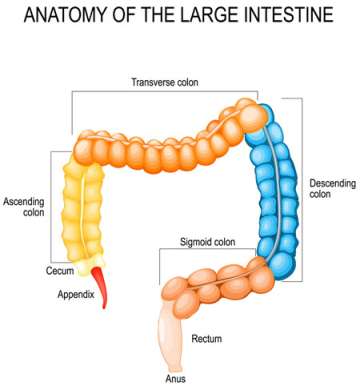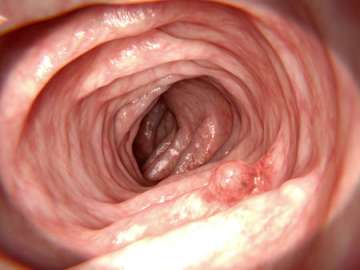About Colon (Colorectal) Cancer
What is colorectal cancer?
Colon cancer, also known as colorectal cancer, is cancer that starts in the colon or rectum. The colon and rectum are both parts of the digestive system.

The main purposes of the colon are to absorb water and make stool. The colon then delivers this stool to the rectum. The colon has four parts. The ascending colon extends upwards from the right side of the abdomen. The transverse colon extends from the right to left abdomen. The descending colon extends down the left side of the abdomen. Finally, the sigmoid colon curves towards the center of the body and downward. The sigmoid colon is connected to the rectum, which connects to the anus.
How does colorectal cancer begin?
Colorectal cancer begins when normal cells in the inner lining of the colon or rectum transition into abnormal cells. These abnormal cells grow to form a small lump of cells known as a polyp. There are different types of polyps, and only some are at risk of becoming cancer. The most common type of polyp is an adenoma, also known as a tubular adenoma.
Approximately 25% of all individuals have adenomas, and although adenomas have the potential to become cancer, only about one in ten will. The larger the adenoma, the more risk it carries to become cancerous.
Colorectal cancer screening
Fortunately, the transition from adenoma to colon cancer is slow (10 to 20 years). In many cases, screening can lead to the detection and removal of polyps before they become cancer. A screening test is a preventive test aimed to detect a medical condition or disease in an early stage and before symptoms begin.
Adults at average risk of developing colorectal cancer should begin routine screening at age 45.
Individuals with a family history of colorectal cancer must start screening earlier.
When to start colon cancer screening

UCLA Health strongly recommends that adults at average risk of developing colorectal cancer begin screening at age 45. Screening starting at age 45 is also supported by several professional medical societies, including the United States Preventative Service Task Force (USPSTF) and the American Cancer Society (ACS).
The American College of Gastroenterology (ACG), American Gastroenterological Association (AGA), and American Society for Gastrointestinal Endoscopy (ASGE) all suggest that African Americans begin screening at age 45 given higher rates of colon cancer and deaths in this group.
Learn more about colorectal cancer screening at UCLA Health.